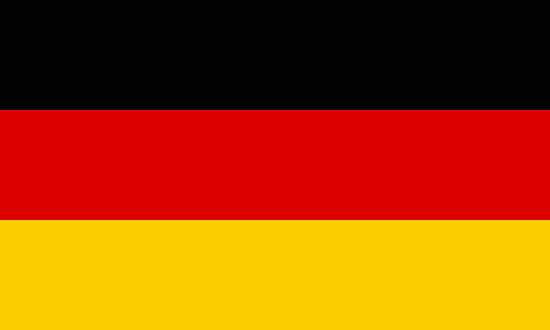"Düsseldorf - Lebensgefühl am Rhein | Dusseldorf - Way of life on the Rhine"
About:
Düsseldorf, Germany, was founded around 7th-8th centuries, gaining town privileges in 1288. It became the capital of the Duchy of Berg in the 14th century. The city was heavily damaged in World War II but underwent significant reconstruction in the post-war period. Düsseldorf became the capital of North Rhine-Westphalia in 1946. Today, it's known for its pioneering influence on electronic/experimental music and its Japanese community. It's a global hub for fashion and trade fairs, and a major business and financial centre.
When to visit:
Düsseldorf, a vibrant city in western Germany, is a delightful destination to visit throughout the year. However, one of the best times to experience the city's charm is during the summer months from June to August when the weather is warm and pleasant for exploring its numerous outdoor attractions. The city also hosts a variety of festivals and events during this time, including the famous RheinKirmes funfair. If you prefer a festive atmosphere, visiting during the Christmas season when the city transforms into a winter wonderland with its enchanting Christmas markets is highly recommended.
When to avoid:
Dusseldorf, a vibrant city in western Germany, experiences its busiest and most crowded periods during major holidays such as Christmas and New Year's. These times are characterized by large influxes of visitors, leading to heavily congested streets, packed public transportation, and limited availability of accommodations. Travelers may also encounter higher prices for flights, hotels, and attractions during these peak holiday periods. As a result, those seeking a more relaxed and less crowded experience may wish to avoid traveling to Dusseldorf during these popular holiday seasons.
Winter (Dec-Feb)
In Dusseldorf, winter (December to February) is the coldest part of the year. Temperatures average between 0°C to 5°C, often dropping below freezing at night. Snowfall is sporadic but possible. Rainfall is relatively high, averaging 70mm per month, and skies are predominantly overcast. Sunlight is limited to an average of 2 hours per day. An average day for a visitor would include bundling up in warm clothing to explore the city's indoor attractions, with the occasional snowy landscape adding to the charm.
Summer (June-August)
The warmest part of the year in Dusseldorf, Germany, typically extends from June to August, with July being the warmest month. During this period, the average high temperatures range from 21°C (70°F) to 25°C (77°F), while the average low temperatures range from 13°C (55°F) to 16°C (61°F).
Rainfall is fairly evenly distributed throughout the year in Dusseldorf, but the summer months do see a slight increase, with an average of 70-80mm of rain per month. This often comes in the form of moderate, brief showers rather than continuous rain.
Sunlight is abundant during this period with an average of 6-7 hours of sunshine per day. The longest day of the year, usually around June 21, can have up to 16 hours of daylight.
Humidity levels are relatively moderate during the summer, typically around 60-70%. However, it can occasionally feel muggy due to the combination of warmth and humidity, especially after a rain shower.
Cloudiness varies, but summer days are often partly cloudy. Clear or mostly clear days are also common, especially in the early part of the summer.
For a visitor, a typical day in Dusseldorf during the warmest part of the year would likely start off cool in the morning, warming up to a comfortable, mild temperature in the afternoon. There might be a brief shower or two, but these often pass quickly, leaving the rest of the day for sunshine and sightseeing. Evenings are usually pleasantly cool, perfect for a stroll along the Rhine or enjoying the city's vibrant outdoor dining scene.
Language:
In Düsseldorf, the most commonly spoken language is German, as it is the official language of Germany. However, due to its diverse population and status as an international business hub, a variety of other languages are also spoken. These include English, widely used in business and tourism sectors, and Turkish, spoken by the large Turkish community in the city. Additionally, other European languages like French and Dutch can also be heard.




